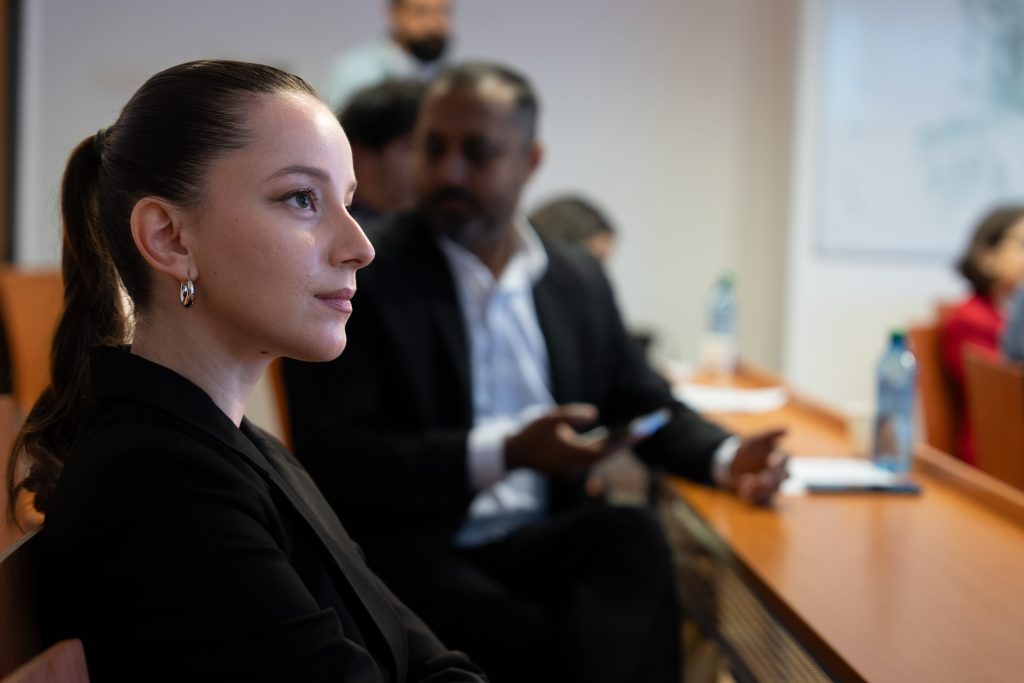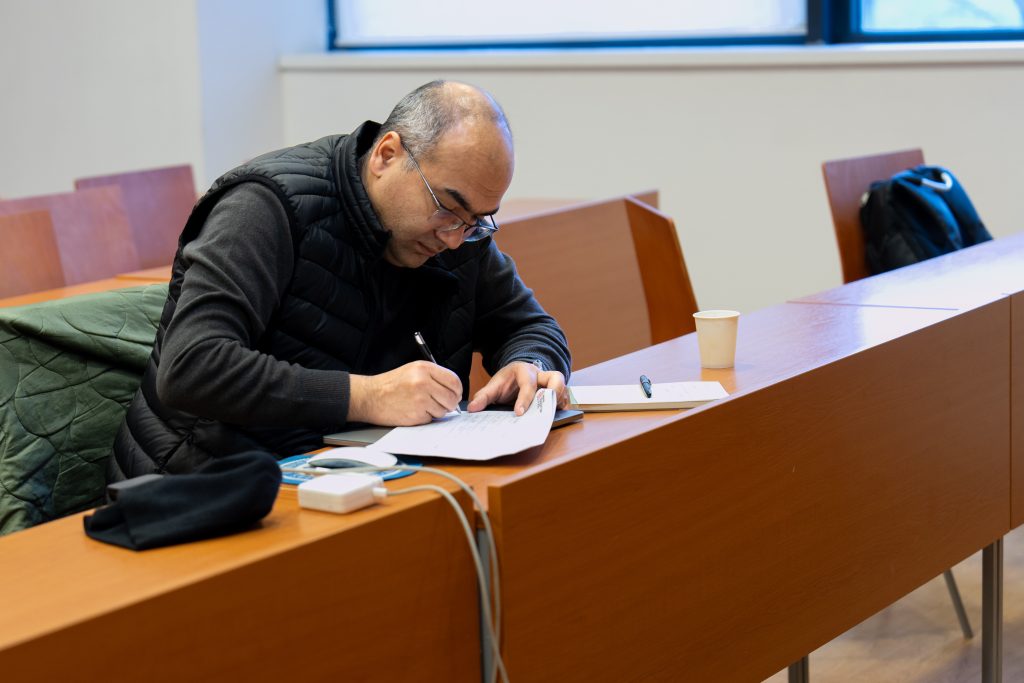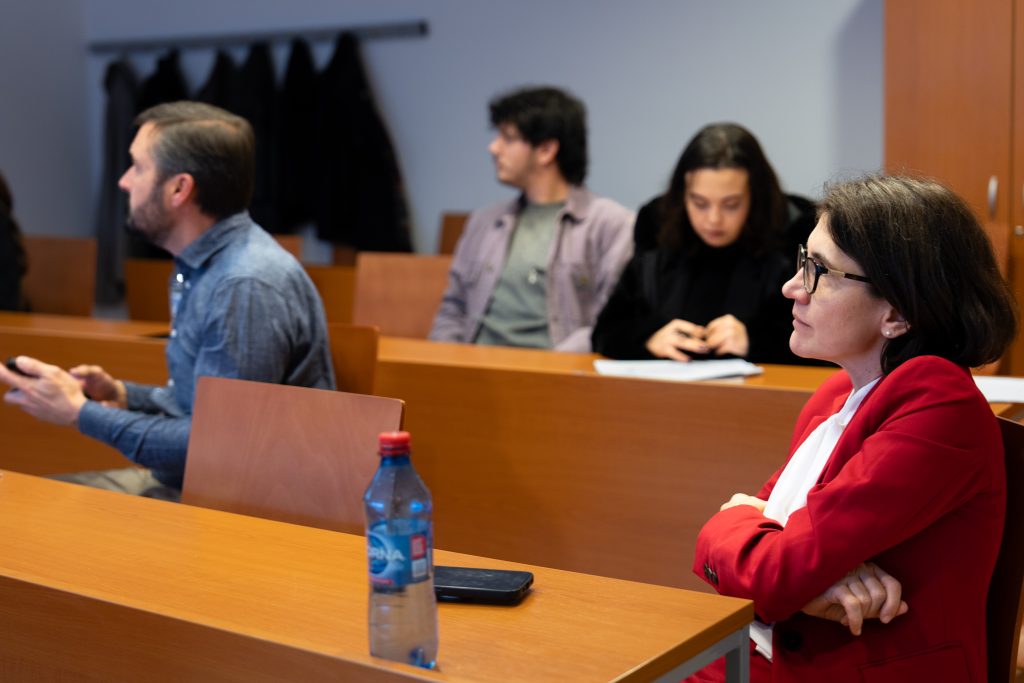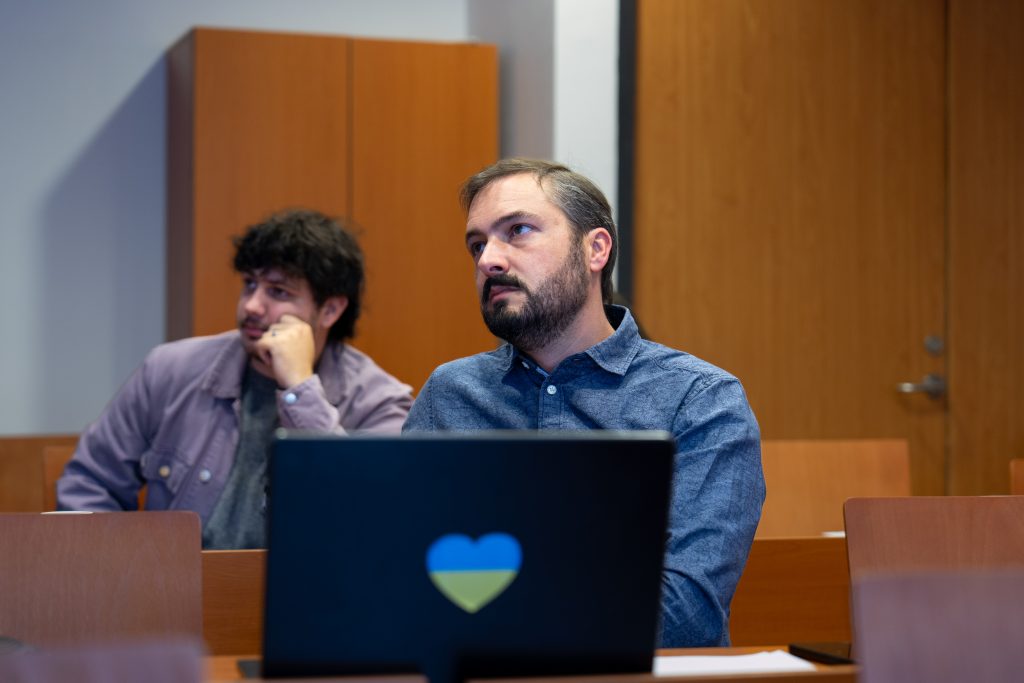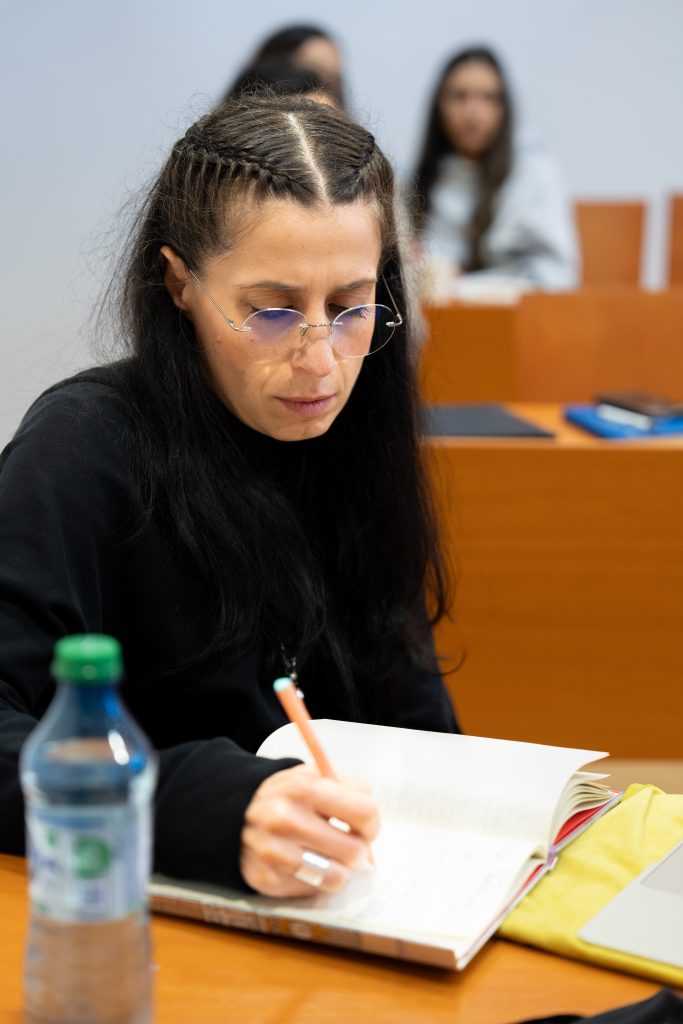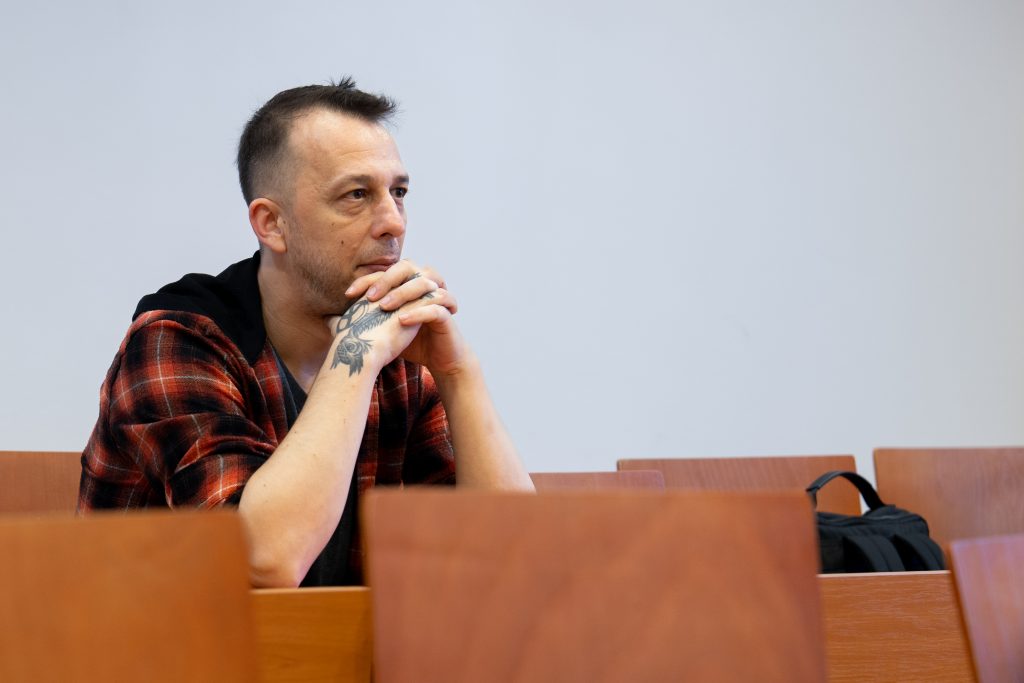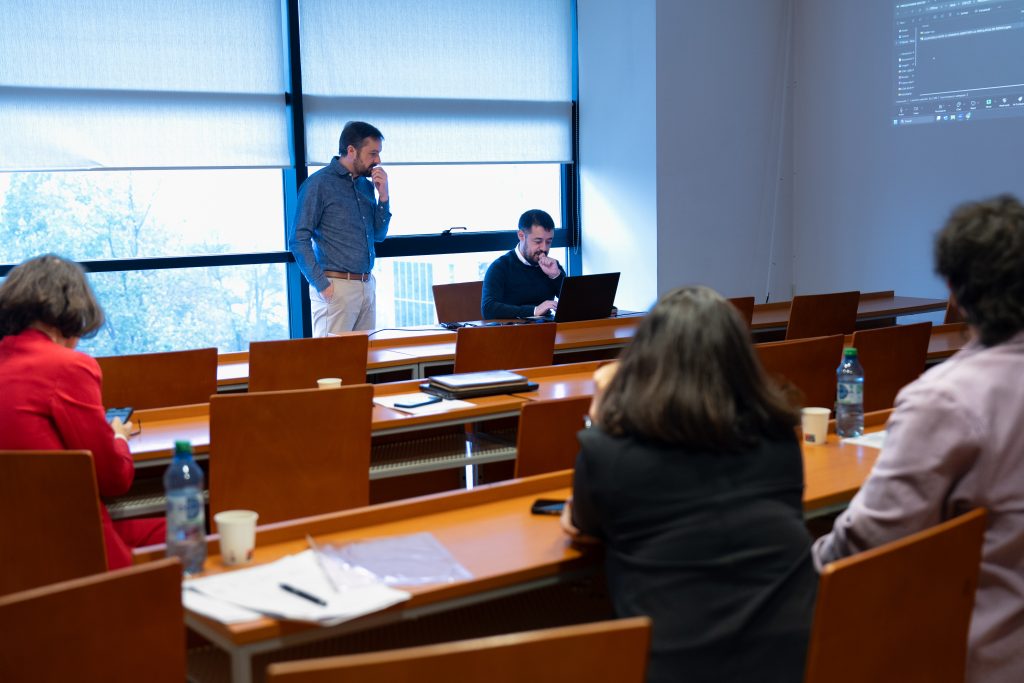4th Edition of the Scientific Conference “Gheorghianism (Nicolae Gheorghe’s Doctrine) and the Foundations of the Roma Nation”
November 7–8, Bucharest – The Roma Education Fund Romania, in collaboration with the Master of Roma Studies and the Faculty of Political Sciences at the National School of Political and Administrative Studies (SNSPA) in Bucharest, Romania, organized the fourth edition of the Scientific Conference on “Gheorghianism (Nicolae Gheorghe’s Doctrine) and the Foundations of the Roma Nation”.
The official opening was held on November 7 at the REF Romania headquarters, moderated by Dr. Ioan Valentin Negoi. The event featured guests such as PhD candidate Maria Luiza Medeleanu, Alex Stan Master’s student at the University of Sydney, Australia, (online), and PhD candidate Oana Rusu. Discussions focused on the theme “The Image of Roma in Media: From Theatrical Art to Racism” and were streamed live on the REF Romania and RomStoria Facebook pages. The debate continued informally afterwards during a social gathering.
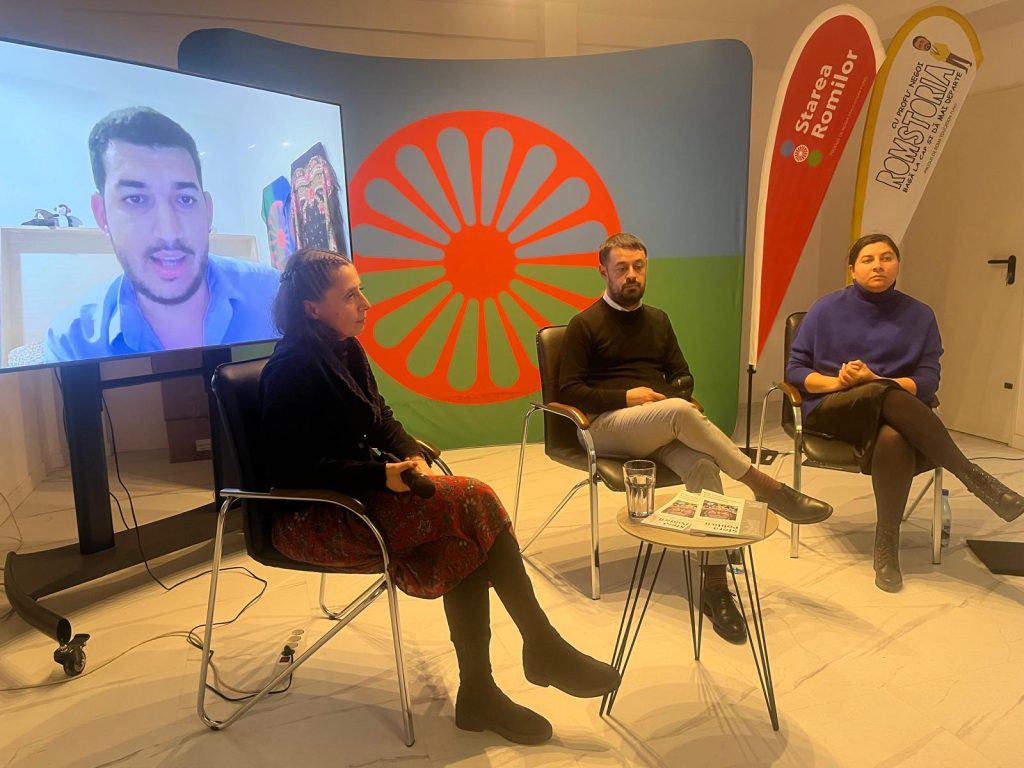
The second day, November 8, a series of academic presentations began both in-person at SNSPA and online, highlighting diverse perspectives on Romani identity, history, and representation. The opening remarks were delivered by Dr. Ioan Valentin Negoi, who also moderated the first panel, featuring:
- PhD Ion Duminică – Craftsmanship as a Determinant of Roma Enslavement in Wallachia and Moldavia (online)
- PhD candidate Daniel Caraivan – Mixed Marriages and the Dynamics of Identity among Roma Populations (online)
- PhD candidate Fernando Varga – Digital Anti-Romism: An Analysis of Hate Speech Surrounding Roma Protests in Romania (online)
- Master’s student Alex Stan – The Issue of Social Communication for Roma through the Lens of Exchange Theory (online)
- PhD Shaun Williams – Romani Music Between the Public and the Counterpublic: Lăutari (Musicians) and the Dual Economy in Communist Romania
- PhD candidate Stelian Frunză – The Musical Heritage of Romani Lăutari (Musicians): Education, Socialization, and Professional Identity
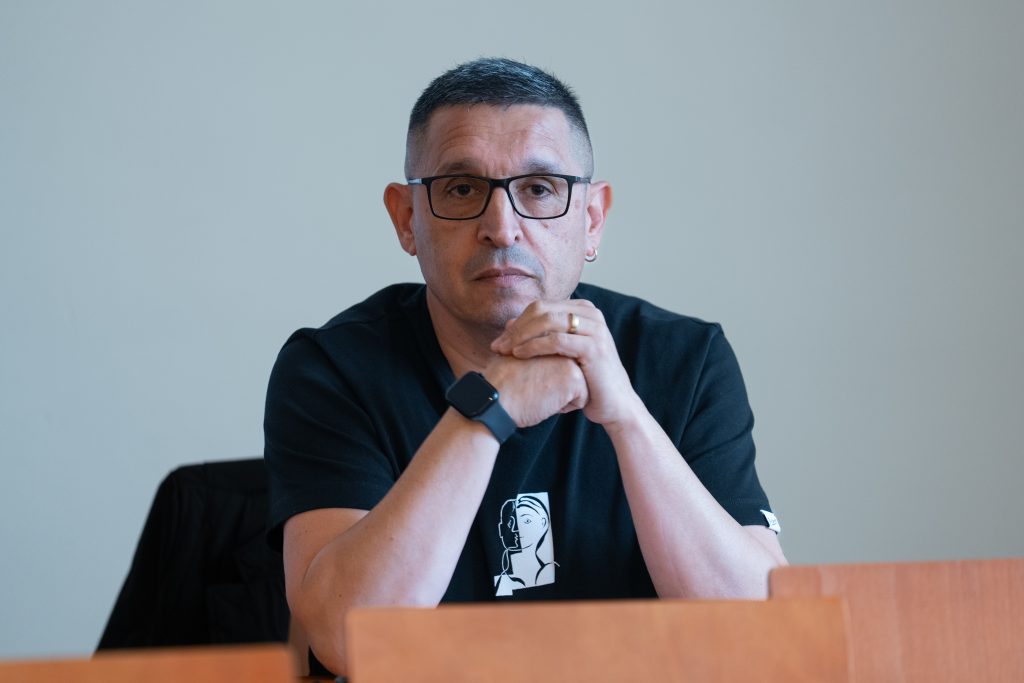
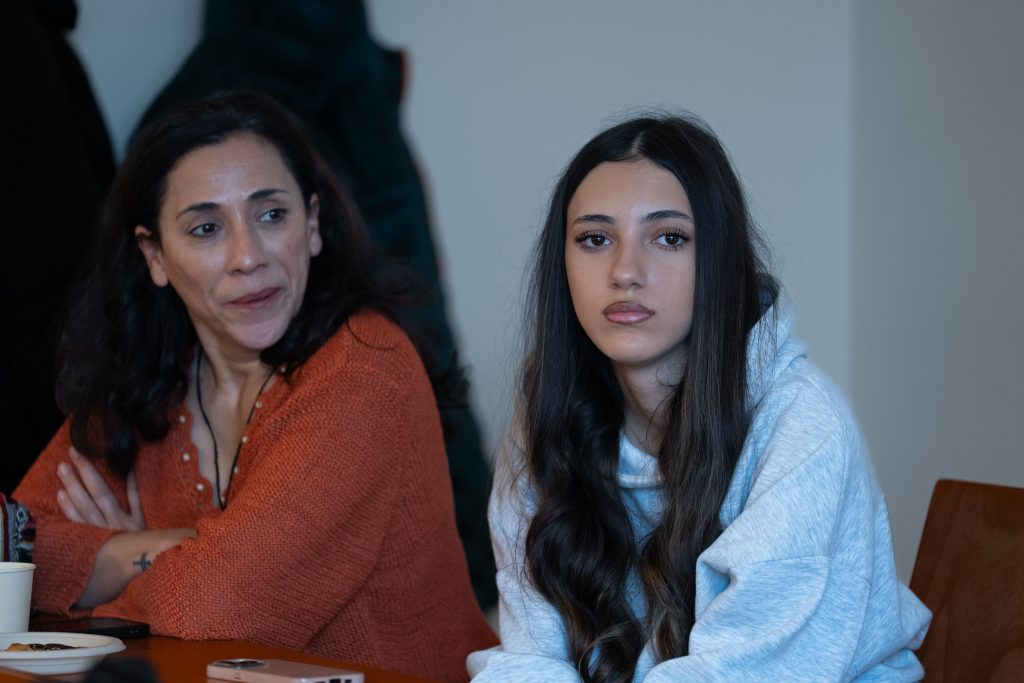
The second panel, moderated by Dr. Alexandru Zamfir, included presentations by:
- PhD Delia Grigore – The Theme of Racism in Romani Poetry
- PhD candidate Mihai Roșu – Challenges and Limits of Roma Political Representation in Romania
- PhD candidate Oana Rusu – The Influence of Ethnicity on the Expressivity of Acting: The Paradox of Expressivity
- PhD candidate Cosmin Marin – Conversational Education vs. Customary Education in Roma Communities
- PhD candidate Luiza Medeleanu – The Absence and Presence of Romani Voices in Acta Comparationis – The World’s First Journal of Comparative Literature
- PhD candidate Adrian Nicolae Furtună – Voivode Ștefan Răzvan: Constructing and Deconstructing a Hero in Romanian Historical Memory
- MA Bebe Ciuraru – Anton Pann – Was He or Was He Not Romani?
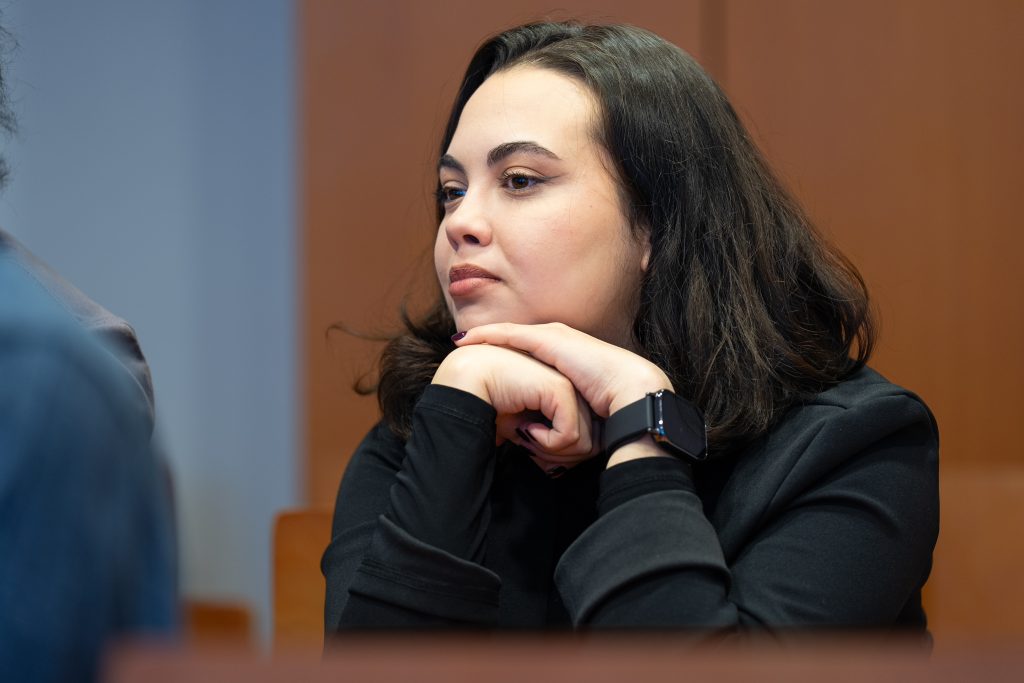
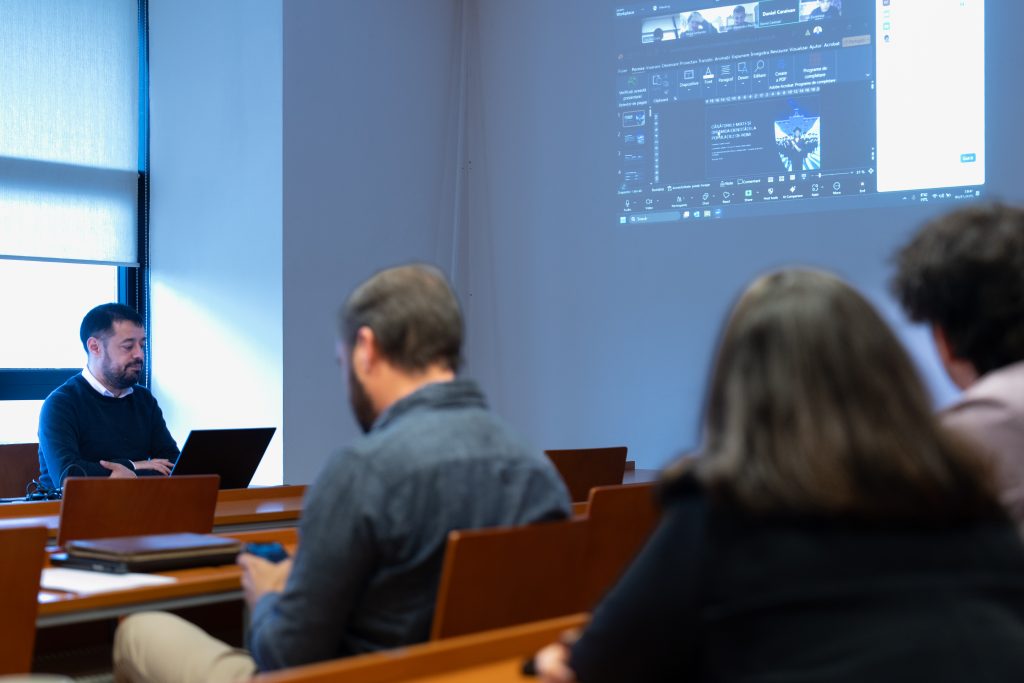
After the lunch break, Dr. Mihail Ghiga presented his research, “The Discovery of Musical Manuscripts Belonging to N.A. Dinicu, from the Celebrated Dinicu Family of Musicians”, accompanied by a live violin performance of several rediscovered pieces. The afternoon session was divided into two parallel panels.
The first, moderated by PhD candidate Ștefan Ider, featured:
- PhD candidate Ștefan Ider – Over 1000 Years of Genetic Flow: Documenting European Ancestry in Roma Populations through Bayesian Meta-Analysis
- PhD Manuela Marin – Roma in the Socialist City
- PhD Ioan Valentin Negoi & PhD Ciprian Necula – Solidarity in the Writings of Nicolae Gheorghe
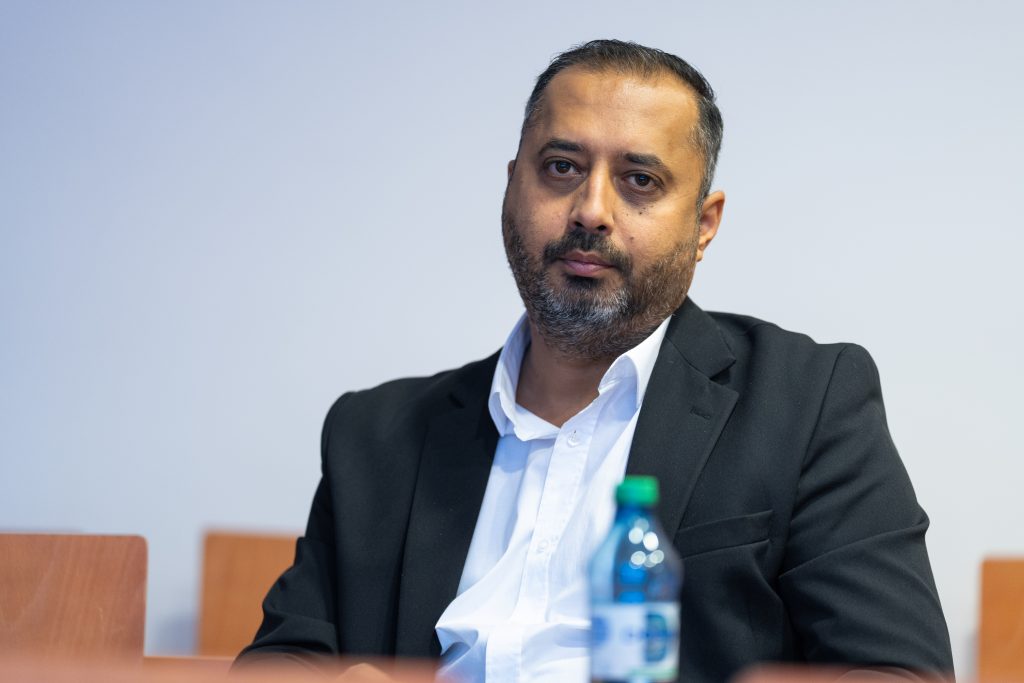
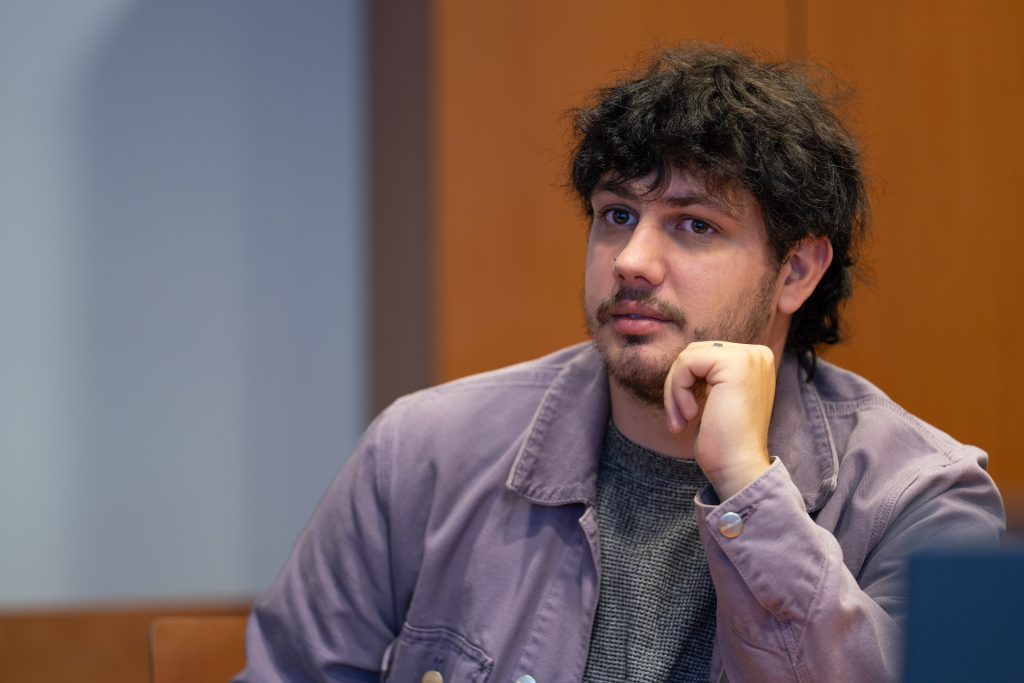
The second, moderated by PhD candidate Maria Luiza Medeleanu, included:
- PhD Alexandru Zamfir – The Contribution of Children’s Literature to Shaping Romani Identity
- PhD Andrei Ghimiș – The Influence of the European Union on the Development of Roma Public Policies
- Master’s student Shakira-Valentina Ștefan – The Resilience of the Roma People: An Analysis of Cultural, Familial, and Individual Protective Factors
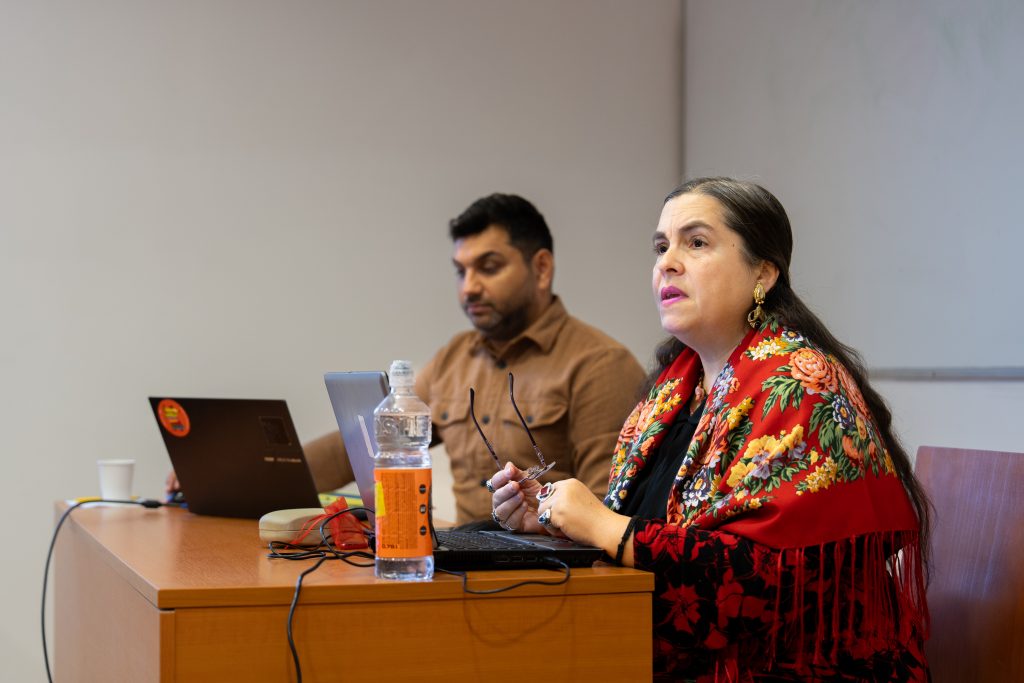
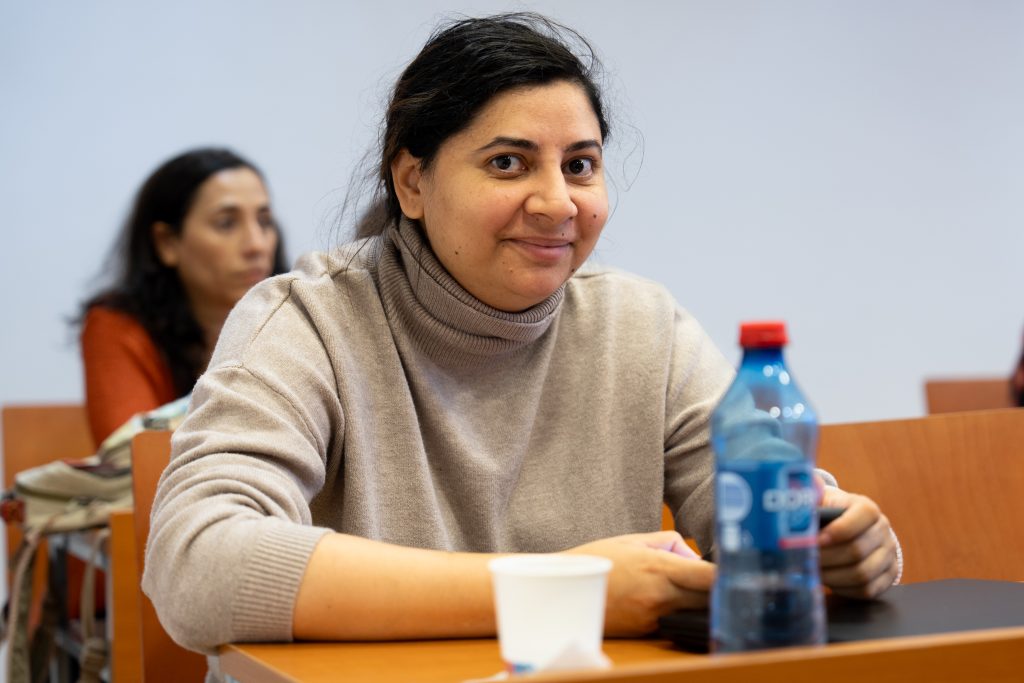
The conference concluded with a reflective session summarizing the key insights and perspectives shared across both days. This annual academic event continues to honor the intellectual legacy of Nicolae Gheorghe and to advance critical dialogue on Roma history, identity, and social transformation.
